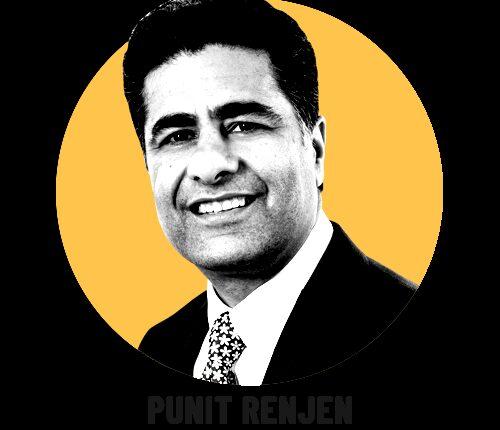Punit Renjen is the CEO of Deloitte Global. The opinions expressed in this commentary are his own.

Climate change poses one of the greatest threats humanity has ever faced. In the past few weeks alone, wildfires have emerged across the globe, brutal heatwaves have devastated American cities, and flooding has claimed the lives of hundreds in Europe and Asia combined. As the effects of climate change wear on, these extreme events will likely only get worse.
Making meaningful, measurable progress is a monumental task. For the sake of the planet and future generations, it is vital that global businesses, and the professionals who run them, step up in the fight against climate change and take urgent action.
Here’s how:
Reduce their own emissions
At the recent G7 Summit, world leaders doubled down on their climate pledges, focusing on the opportunity for a just energy transition that will likely create clean energy jobs around the world. Among other things, they committed to reach net-zero carbon emissions by 2050, halve their collective emissions by 2030, and protect at least 30% of land and oceans by 2030.Read MoreThe business community must match the ambition of world governments by cutting emissions across their own operations.Hundreds of companies have now taken the first step in doing so: committing to 100% renewable energy. The tech sector in particular has been leading this shift, with a number of companies already reaching their 100% goal, and many more setting science-based plans to get there.
Disclose risks and adopt new reporting standards
Companies must analyze the financial risks that climate change poses to them — and publicly disclose that information. Global capital markets need high-quality, consistent and comparable data to understand drivers of risk and return, allocate capital efficiently and finance the transition to a more resilient, low-carbon economy.

How the business community can help protect voting rightsBy providing financial markets with the right information, we can build confidence that money flows where it needs to go to boost resiliency and curb emissions across the globe. This means companies exposed to long-term climate-related risks may see higher costs of doing business while companies that develop climate solutions could have access to cheaper capital. We are seeing this play out already. Allianz, for instance, will no longer offer property or casualty insurance coverage to mining companies that plan new coal mines. And BlackRock is setting limits on its investments in companies that are exposed to climate risks. I am encouraged that businesses are increasingly reporting on the impact of climate change and taking steps to increase transparency and accountability through initiatives like the World Economic Forum’s Stakeholder Capitalism Metrics, a set of environmental, social and governance (ESG) disclosures that companies can report on. The recent pledge from the G7 to adopt climate reporting standards reinforces the direction that the regulatory environment is heading in.
Educate employees
As business leaders, we need to recognize that our people are our greatest asset — our “superpower.” With organization-wide climate education programs, businesses can develop a culture of sustainability and climate-conscious thinking at the very core of their work.That is why, starting this month, Deloitte has begun to roll out a new climate learning program for all 330,000 of its professionals worldwide.Developed in collaboration with World Wildlife Fund (WWF), the program is designed to engage our people on the impacts of climate change, inform them about how we are responding and inspire them to take action. By building a workforce of climate advocates and a culture of climate action, we will create a network of support for a transition to sustainable business models with far-reaching influence.
Advocate for climate policies
Businesses must leverage their collective power to advocate for climate policies that meet the ambition of reaching net-zero by 2050 or earlier. Alongside fellow CEOs from across the world, I recently signed on to a call for government leaders to place a price on carbon and invest in the infrastructure needed to accelerate a transition away from fossil fuels. Companies ranging from shipping and logistics giants to major retailers have taken similar steps to drive systemic change in recent years. And even the oil and gas sector has lent its support for carbon pricing.I call on other leaders to rise to this challenge. They must make climate knowledge a core competency across their businesses — a springboard for greater action — and take concrete steps to address the climate crisis head-on.
Watching the world come together to fight Covid-19 has been nothing short of inspiring, but as communities begin to recover from the pandemic, they cannot revert to the previous way of doing things. Let’s build on this global cooperation that we know is possible and step up to the next greatest challenge humanity has ever confronted.For companies to build long-term sustainable value for all stakeholders, they must do their part to build an equitable and sustainable future. Our future depends on it.
Source: edition.cnn.com

